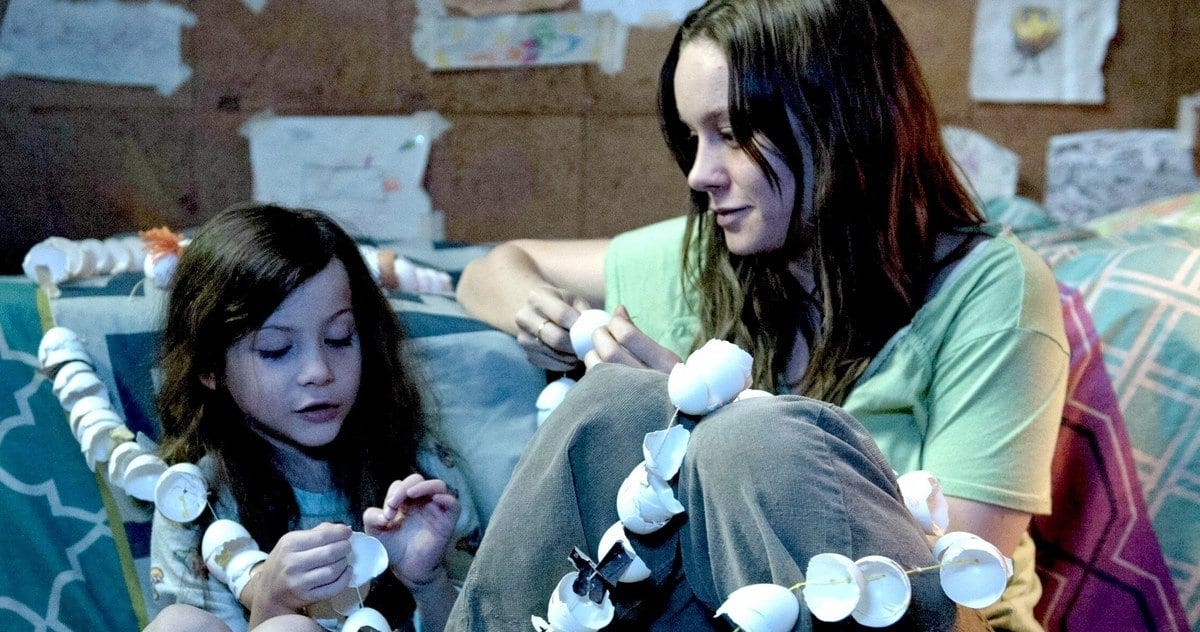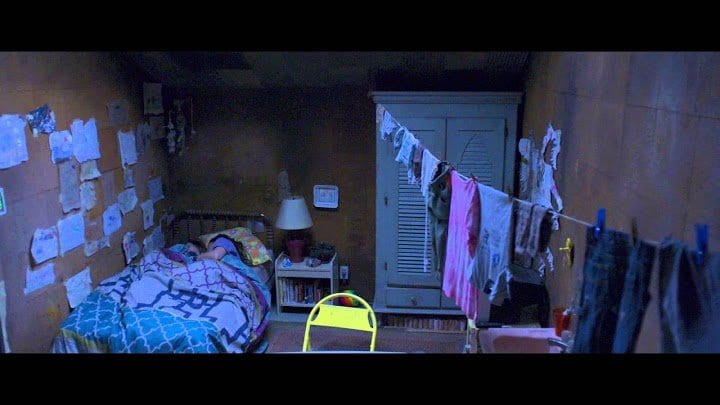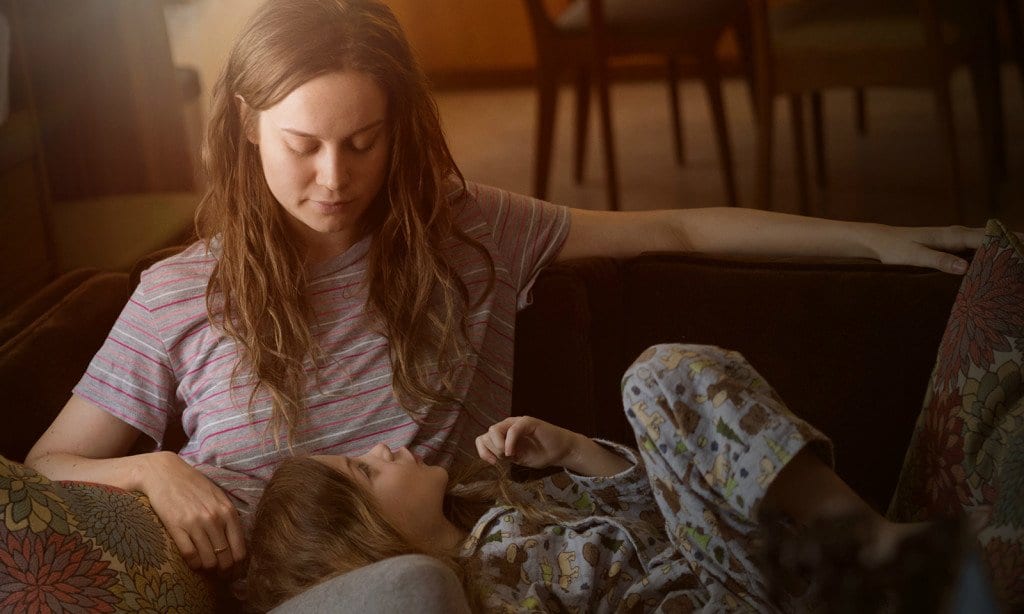A powerfully connective thread of the fabric of cinematic art is the way it impacts an individual beyond authorial intent. I’m sure Lenny Abrahamson didn’t intend for his 2015 feature film Room to act as a metaphor for anxiety and yet, during my most recent rewatch of the film, I couldn’t help noticing the parallels between many of the film’s themes and my current mental health struggles. Unable to push the similarities aside, I embraced the commonalities and used the opportunity as a writing exercise to understand my ongoing conflicts with my anxiety. It was through this exploration that I realized just how powerful the perspective of the viewer is, and how drastic a change in mindset can make the experience of watching something. I didn’t think of my anxiety or mental health struggles the previous two times I had seen Room, and I certainly didn’t expect to draw that connection during my most recent rewatch, yet, that is a possibility when interacting with such an impressive narrative. It was Aristotle who said, “The aim of art is to represent not the outward appearance of things, but their inward significance.” The artist and the audience work together—the artist providing the piece of themselves they breathed to life, and the audience interpreting it through the inward significance they bring with them. The strong connections to each other brought about by our creation and consumption of art are part of what makes the collective human experience so rich and dependent on one another.

In an Oscar-winning performance, Brie Larson stars as Ma to Jack (Jacob Tremblay), a 5-year-old who was born in a prison that he didn’t know was a prison. The audience soon learns that his Ma (Joy) was kidnapped and held captive in a 10-by-10-foot space in which they have been kept sequestered by their captor, Old Nick (Sean Bridgers). In a fantastic display of human resilience and motherly dedication, Ma has devoted herself to creating structures and routines in hopes of giving Jack the best life he can experience. Since Joy has been held captive for seven years, and we see Old Nick come in regularly to assault her sexually, it is clear that Old Nick is Jack’s father. This fact, however, in no way lessens Joy’s love for her son nor does it hamper her endless pursuit of giving her son the best that she can, despite the fact that all of her agency has been stolen from her. Creating an entire universe for her son to make up for what he is unable to see, Jack’s imagination is both active and unhampered by his limited space. All Ma and Jack have are each other, aside from the trips Old Nick makes to “Room”—as Ma has named their dwelling—to bring them food, clothing, water, and other necessities. Eventually reaching the point of mental exhaustion and an increased inability to explain away the seclusion of their world to Jack, Ma risks everything on a daring escape plan in hopes of gaining her freedom once again and living with her son in the outside world.
Just as we see Ma construct a carefully scheduled day for herself and her son, so too are routines best adhered to when going through a particularly severe episode of anxiety. Just as Ma and Jack had specific times throughout the day in which they exercised, cleaned, colored, played, and stretched, so too did I schedule times for myself where I would write, workout, do dishes, shower, and read in order to keep my automatic thoughts at bay to hopefully avoiding another anxiety attack. As a long-time sufferer of anxiety, the coping mechanism I utilize most when I am having a period of difficulty is adherence to a strict schedule filled with self-talk reminders that motivate me toward what I need to accomplish and a hope that I will make it through the day. Similar to the way in which Ma had to create an alternate version of the world for Jack, so too does anxiety create an alternate version of the world to that of the sufferer. My most persistent struggles with anxiety deal with fears that I am a burden on those closest to me and a sincere belief that I will never be good enough at anything or for anyone.
This predisposition allows my anxiety to craft a world where an unanswered text message is translated as abandonment and canceled plans as an indication that I’m no longer worthy of the time of others. Just as Ma says “Jack is nobody’s but mine” so does anxiety only belong to the sufferer. No matter how out of their way people will go to try to help me, there will always be moments where I am alone with my thoughts—my anxiety my only company. Room shows us Ma’s life with Jack, but we are only left to imagine her life without. I often do this myself, wondering if there was a time in my life before my anxiety existed within me, a time where I was happier and more carefree. But like we could see no trace of Ma’s life before Jack, neither can I remember a time when I didn’t suffer from negative thoughts I couldn’t quiet. Mental health struggles become such a part of you that once you live the day-to-day wrangling of your emotions and work so diligently to hone your tools with which you face them, it becomes difficult to remember a time where you didn’t have to work so hard to exist.

Once outside of “Room” and reunited with her family, Ma makes clear to all those around her that Jack is her son, even attempting to make her father verbally accept this fact in front of Jack (something he is unable to do). Some people Ma encounters are unwilling to accept Jack because they cannot disassociate his parentage from him. The fact that the person who kidnapped their loved one also impregnated her is something that cannot be immediately accepted by everyone. People often don’t know how to react to you when you share with them that you struggle with anxiety. Thanks to the term’s broad usage and minimal understanding, coupled with the persistent stigma surrounding mental health, most people don’t know what to do when you exhibit symptoms of your anxiety. If they do accept it, like those that accepted Jack as Ma’s son, you almost feel as though they’re placating you, caught in a situation where they want to be supportive but no-one knows what to do. They want to accept you and want to make sure you are happy, but they don’t quite know how, and you can’t shake the feeling that they are always giving you the side-eye. Just like people have difficulties in how they react to Jack, so too do they battle with how to interact with your anxiety.
There’s a part of you that’s negative, a part of you that has brought great suffering to your existence and those that love you are unwilling to accept that as a part of you. They don’t understand that anxiety is not something that can be fought against or divorced from oneself; instead, the person that suffers must learn to ride anxiety’s waves forever learning how to become equipped with the mechanisms to keep the illness from being debilitating. As scary as anxiety is, it can often be scary to recover from, as well. When you find yourself in an especially consistent period of anxiety, your coping strategies and the new version of your daily life seem like they will be part of your state of being. When you go that first day without an anxiety attack after having one every day for a week, you’re cautiously optimistic that you are on the mend and will find happiness once again. Then, after a day or two passes and you have another anxiety attack, you often feel safest merely retreating to the life you adopted when the dark period started. Jack, experiencing the world and people for the first time in his life after starting his existence in “Room,” was so overwhelmed by all that was around him that he wanted to go back, seeking that which was familiar to him.
When he and Ma went back to the taped-off crime scene that had been their home, Jack couldn’t recognize the space devoid of the pictures he had colored and the objects they had used which had been taken away as evidence. Jack was well and, though he was slightly melancholy for the safety that “Room” represented for him, he also did not want to stay there. It’s funny what you accept as a part of your life when you are going through a difficult anxiety period that seems so foreign to you when you are healthy and happy. Just as hard as it was for Jack to imagine a life outside of “Room,” once he was outside he could never imagine going back. This is just what it’s like once someone that suffers makes it through a difficult period. There are times when I’m so happy and full of life that I find it difficult to believe that I once had to talk myself through showering, brushing my teeth, and getting dressed. Just like Jack looked at “Room” with bewilderment, I too look back on my struggles—once I’m mentally far away from them—with an awe of the way I used to live.

“Can my strong be her strong, too?” Jack asks his grandmother before getting his haircut in hopes that he can transfer his strength to his mother, by giving her locks of his cut hair, while she was in the hospital being treated for her mental health difficulties in re-adapting to life outside of captivity. Anxiety does this also but is far less polite about it. Anxiety will strengthen itself on any part of you that it realizes is weak. When it knows you have a fear of abandonment, it will send your mind down a never-ending rabbit hole of negative thoughts when someone responds to an invitation you extend with a “sure.” “They don’t want to go.” “They think I’m boring.” “They’d rather spend time with someone else.” “They don’t like me anymore.” But when you are strong, when you cut the hair of strength from anxiety, it can no longer adhere to your vulnerabilities. You and your anxiety cannot be strong at the same time—only one of you can hold the hair.
Whether you take medication or go to therapy or use cognitive behavioral techniques, whichever method you choose to gain your strength simultaneously weakens anxiety, making you the victor against your most significant opponent. Initially, outside of “Room,” Jack often rebuilt the structure he called home all of his life with Legos, until one day he recognized the how much negativity that space had brought to his and his mother’s lives, causing him to angrily destroy what he had created. The light within the darkness of anxiety is that we too have this same ability to dismantle that which attempts to break us and to build ourselves anew, stronger, and more resilient than the last time we were taken apart.

